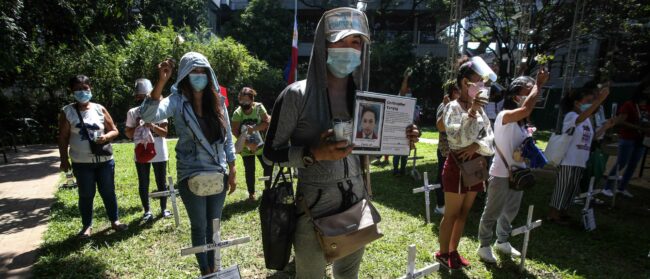Editor’s note: Even today, many Cambodians living with mental illness find little support or treatment. Some are taken to the pagoda for exorcisms or water blessings, beaten with sticks until the “spirits” leave them. Others are chained up at home, a danger to themselves and their families. Ten years ago this month, Southeast Asia Globe visited Phnom Penh’s Khmer-Soviet Friendship Hospital to speak to the men and women struggling to help the hundreds of mentally ill Cambodians who came to the hospital every day for treatment. Now, for the first time, you can read their stories online.
Phnom Penh’s Khmer-Soviet Friendship hospital, better known as the Russian hospital, houses the only psychiatric department in the city. Inside, more than 150 people of all ages are sitting on benches waiting to see one of only two available psychiatrists.
Hour Vannarith,19, is flanked by his parents. He smiles despite his blank, thousand-yard stare. “When I smile at people they become angels,” he confides.
His mother Choun Sokleap works in a garment factory, and has taken ten valuable days off to be at her son’s side. His 40-year-old father Pen Samay is a security guard. “It started when he had a high fever,” he says. “His body got stiff as a board and he began speaking in a way we couldn’t understand. Now we can’t reach him. First we took him to the local monks who blessed him with water, then a fortune teller in Takeo. Neither of them cured him, so we are here to get medication so that hopefully he will become normal again.”
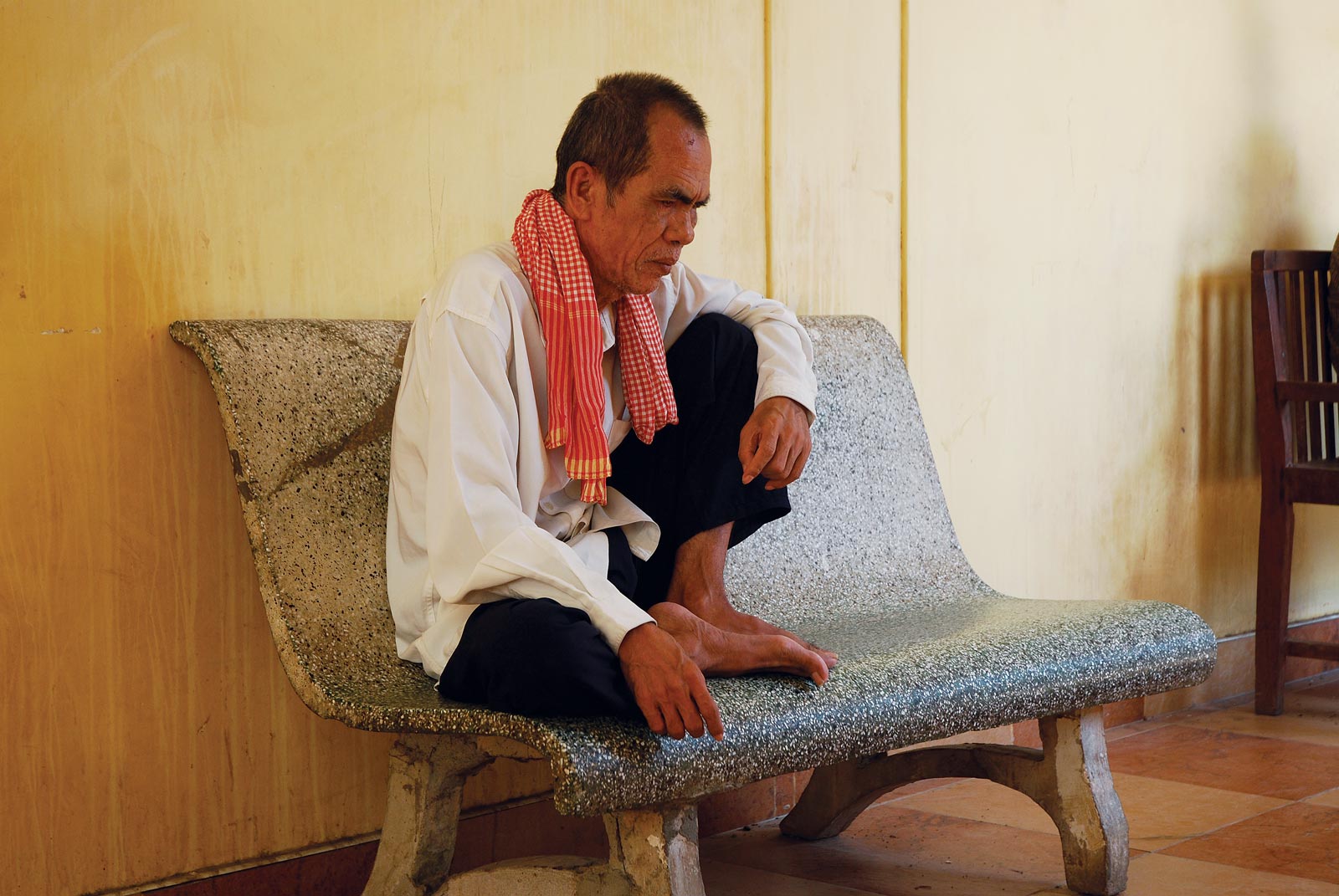
Vannarith’s family comes every three weeks to collect medication from the hospital. He has been sick for four months and seldom stops talking. Caring for him is time consuming and the family’s budget has been slowly eaten up by his illness.
“Those who walk above the Earth” is how North American Indians described the mentally ill. They were convinced that the mentally afflicted had a sixth sense that gave them access to the spirit world and so they were respected by society and used in its religious ceremonies.
In today’s supposedly more sophisticated times life is different. In Cambodia, as in many parts of the developed world, the mentally ill are often left to walk the streets alone. They are often unkempt and uncared for. You may have seen or heard them, perhaps muttering incoherently as they sift through piles of rubbish. Many have been thrown out by families who don’t have the means or patience to care for them.
According to the Transcultural Psychosocial Organisation, up to 40% of Cambodia’s population suffers from PTSD (post-traumatic stress disorder), which manifests itself in depression, psychosis and general poor health. In a country where swathes of society were traumatised by their experiences under the Khmer Rouge, few have received any kind of treatment, says Dr Yim Sobotra, the deputy director at the hospital’s psychiatric department. Their feelings of worthlessness are passed on to their children, who develop similar characteristics, creating a self-perpetuating cycle of illness.
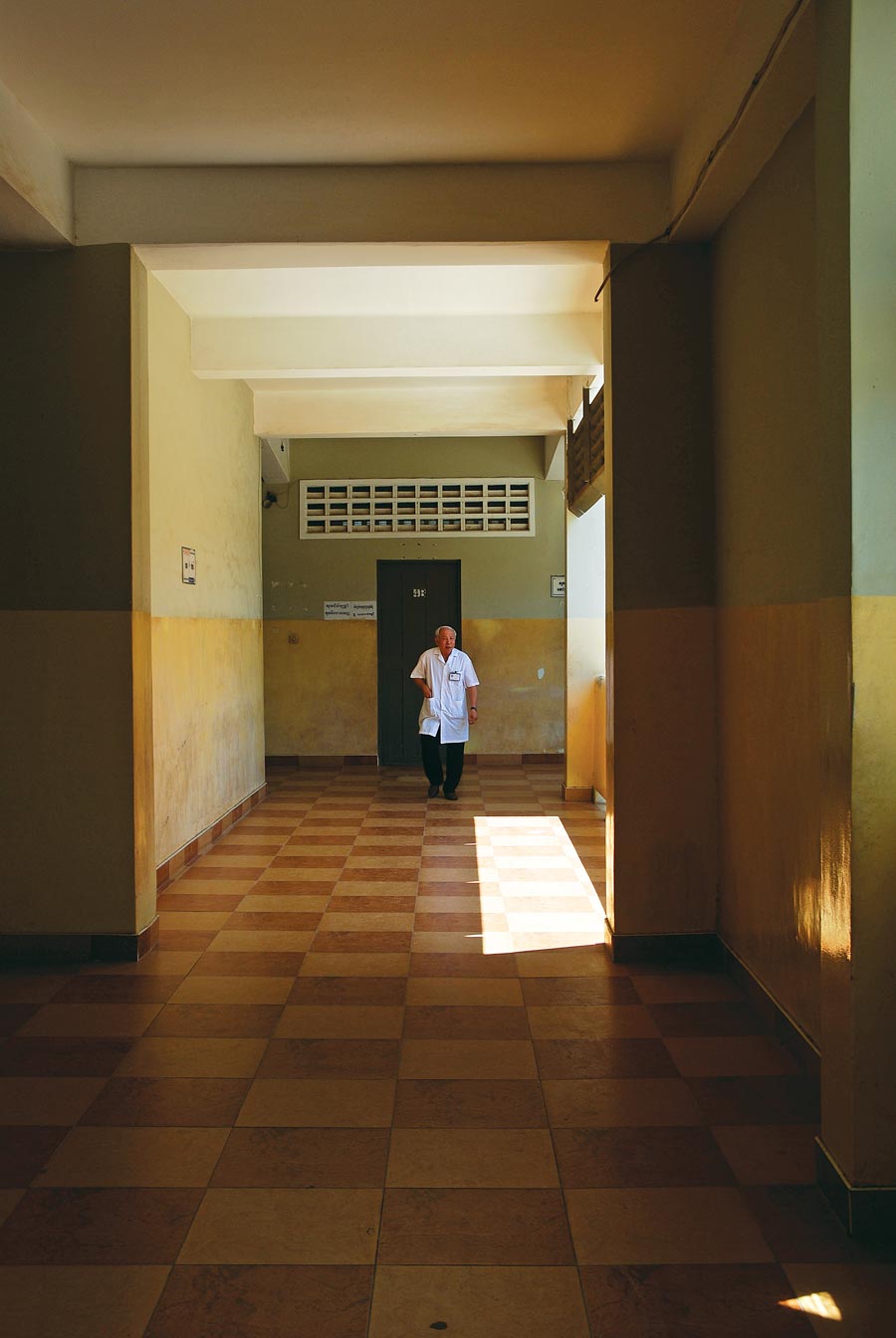
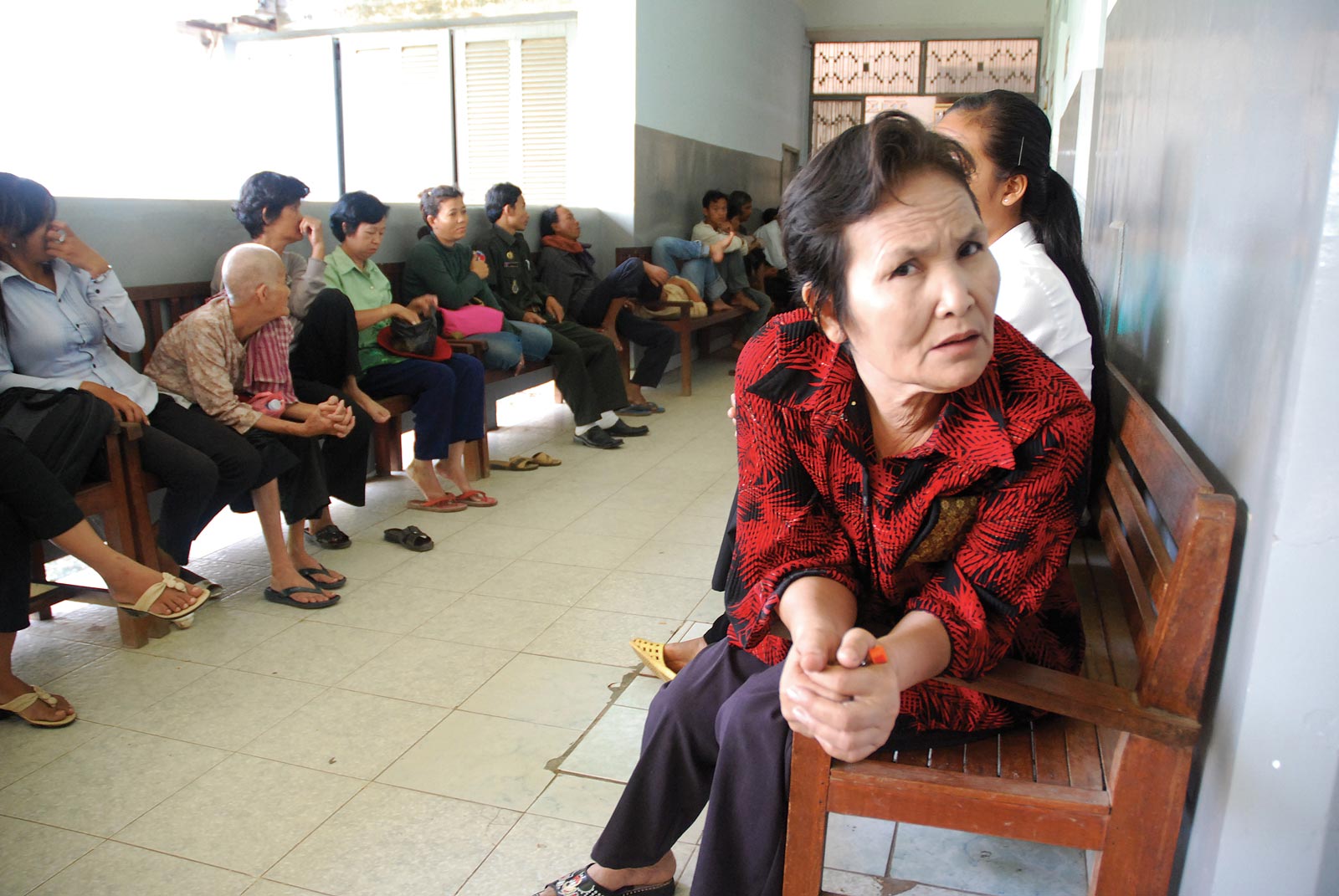
Around 80% of the Cambodia’s population live in rural areas so they have to travel to Phnom Penh to get professional treatment. Before Yim Sobotra, 43, became qualified he worked at the intensive care unit at the Phnom Penh Referral hospital, where he met countless, often young, people who had attempted suicide by drug overdoses.
“After they recovered we sent them home without further treatment and many times they tried again. During my training I didn’t receive any tuition in diagnosing mental disorders, but what surprised me with these patients was that we apparently couldn’t do anything for them. I enrolled onto a training programme in psychiatry at Howard University, which opened my eyes to the fact that many patients we had failed to diagnose were suffering from serious mental disorders.”
The hospital receives between 150 and 200 patients a day, of which most suffer from PTSD, depression and schizophrenia. “We look at the symptoms if a person is stressed, worried, lacks appetite and suffers from insomnia. If a patient has an acute psychosis, it’s important to start treatment early. With the right medicine and good advice the patients improve quickly,” Yim Sobotra says.
“A big problem is that people in the countryside go to monks and local healers who don’t really know how to treat psychosis. I wouldn’t say they are completely useless, I have seen prayer and village counselling help some patients. But traditional healers can often do more harm than good. They will tell people to eat cow excrement, chemicals or drink dirty water. Some patients have even been branded with burning firewood. Some ‘healers’ beat them with sticks and when the patient starts to cry, they say it’s the evil spirit that is screaming at the family. Sometimes the patient dies because of the treatment, but it is rarely reported to the police. Medicine men are generally above the law.”
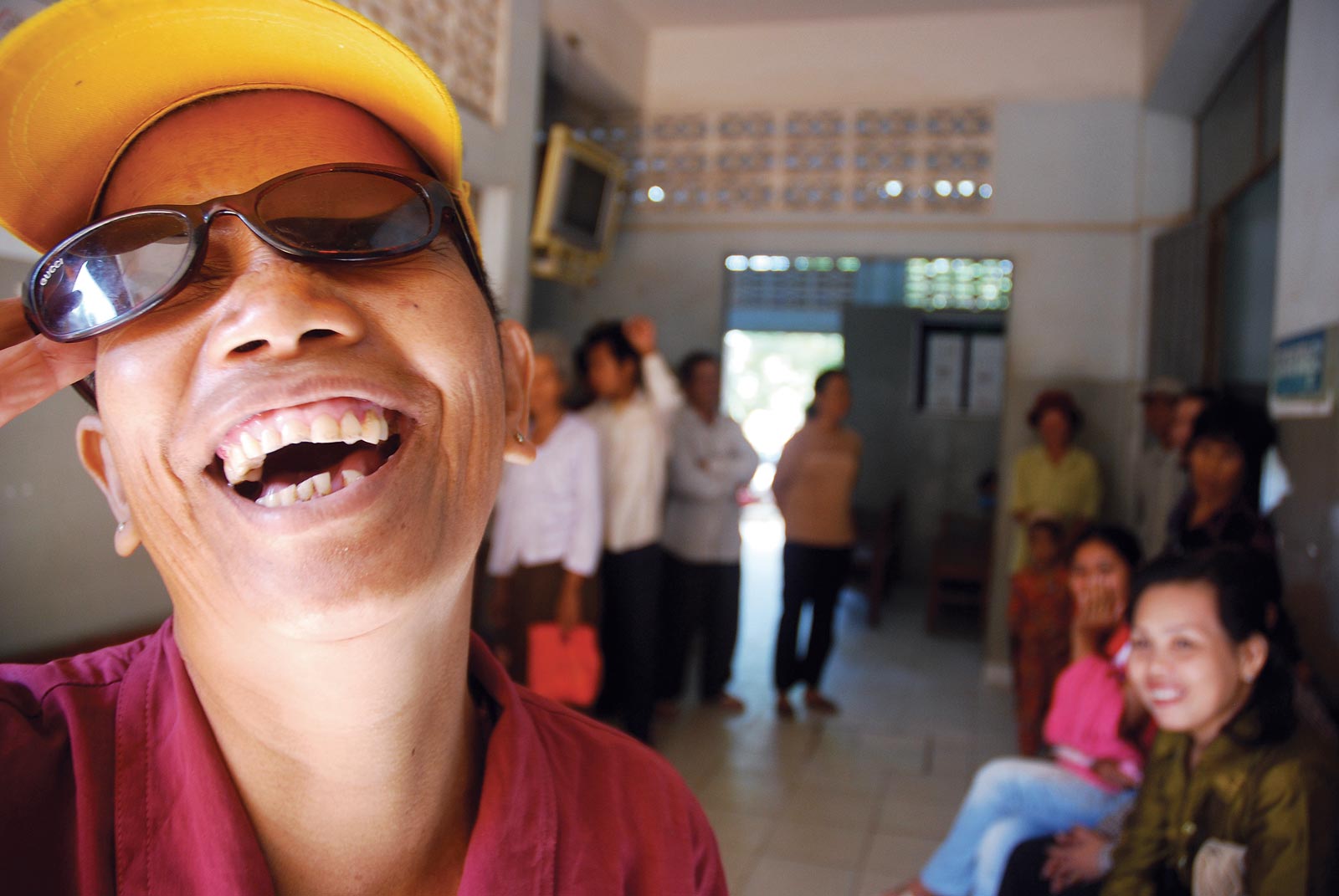
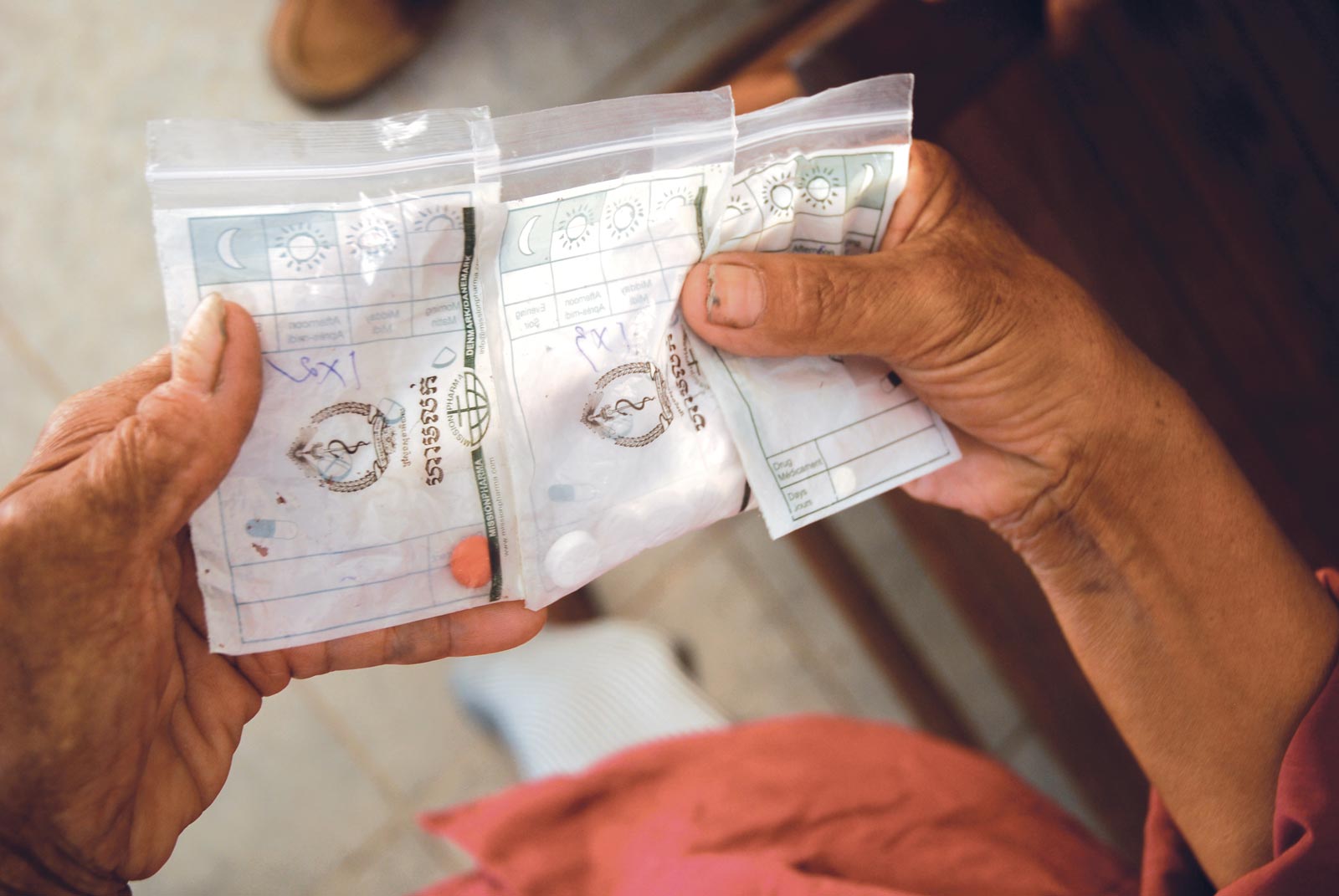
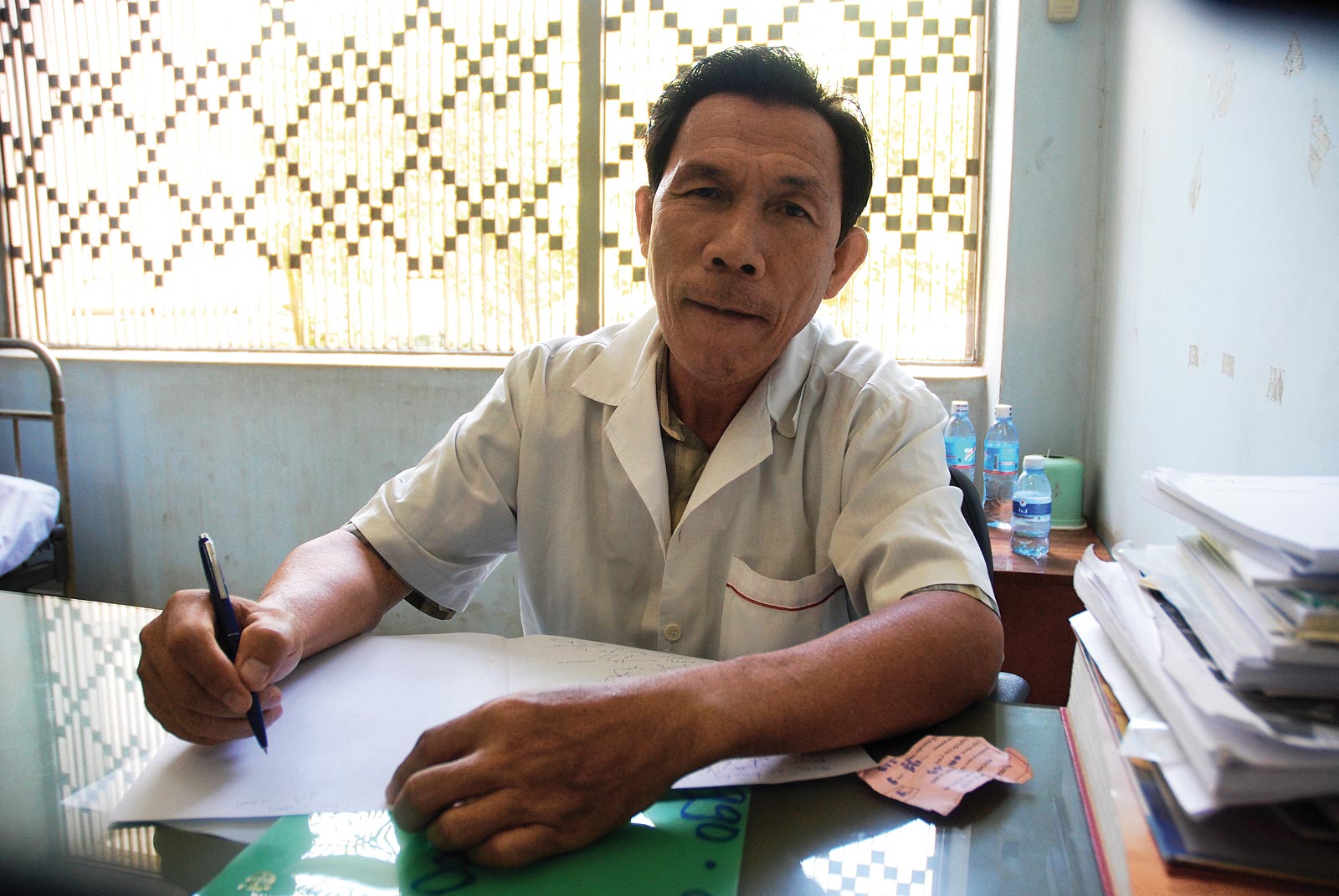
The ministry of health is currently running awareness campaigns on radio and TV about how to recognise signs of mental illness and where to get help. The overriding problem is that hospitals do not have the facilities to take the sick as inpatients, so they are cared for at home. When the patient starts to get better, the family will stop giving the expensive medications despite being told not to. This results in a relapse that can be far more difficult to treat.
Our talk is interrupted by screams coming from a room further down the corridor. Inside, a young man is tied with kramas to a bed without a mattress. His body twists and turns as his mother strokes his hair.
Sokhundy, 21, was diagnosed as schizophrenic three years ago. His initial treatment was successful, but his parents stopped giving him medicine when the symptoms disappeared. He has now relapsed into a more violent state. A danger to himself and others, he is one of the rare cases that have been allowed to stay in the hospital. Although he has been under heavy medication for ten days there are no signs of an improvement in his condition.
The hospital charges $5 a day for keeping him. His family turned up with $25 and ran out of money more than a week ago, so he is now staying because of the kindness of the hospital staff. Of Cambodia’s 30 trained psychiatrists, eight work at the Russian hospital. It’s not enough to cope with the ever-increasing inflow of patients.
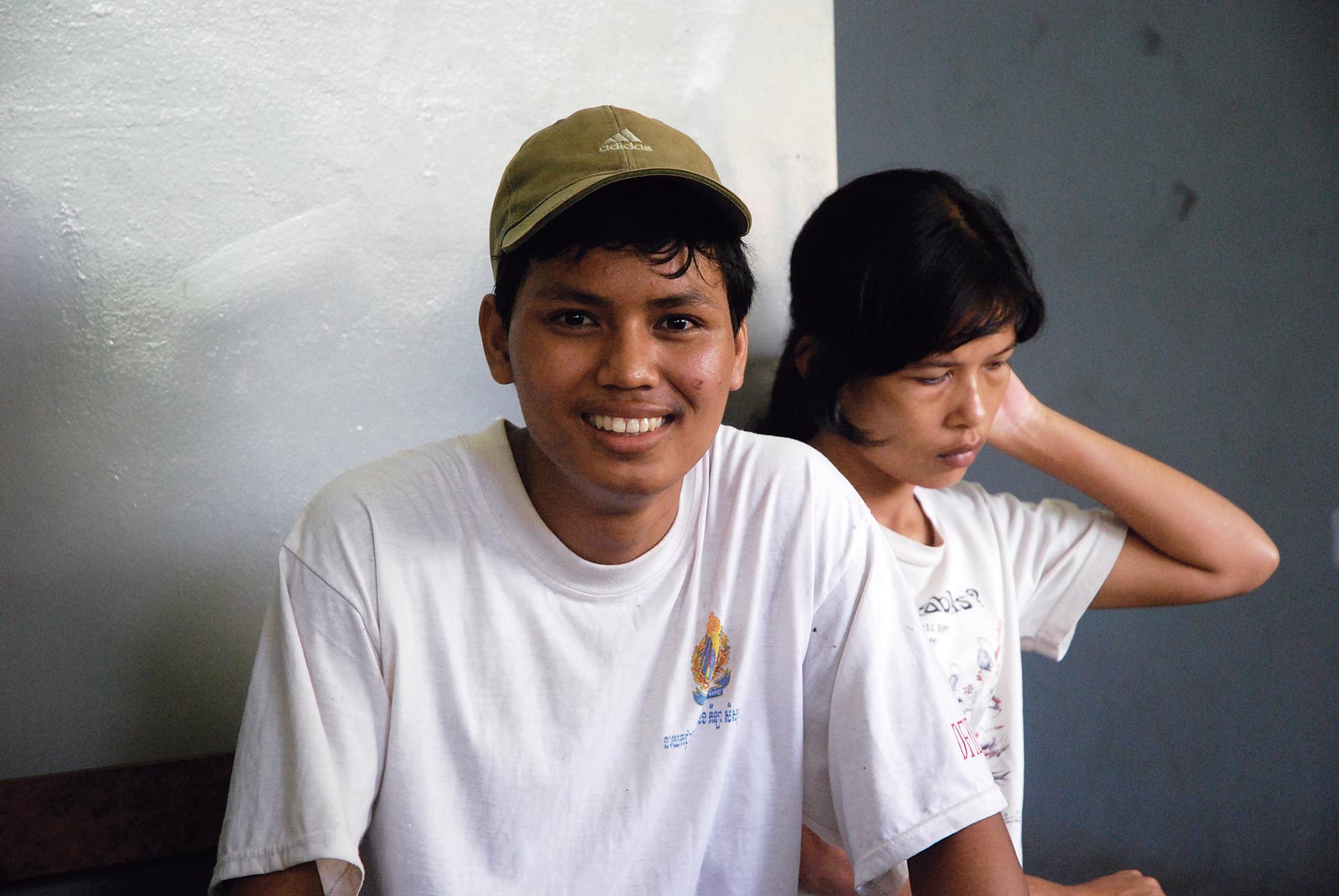
his father Pen Samay (left). Photo: Stefan V. Jensen
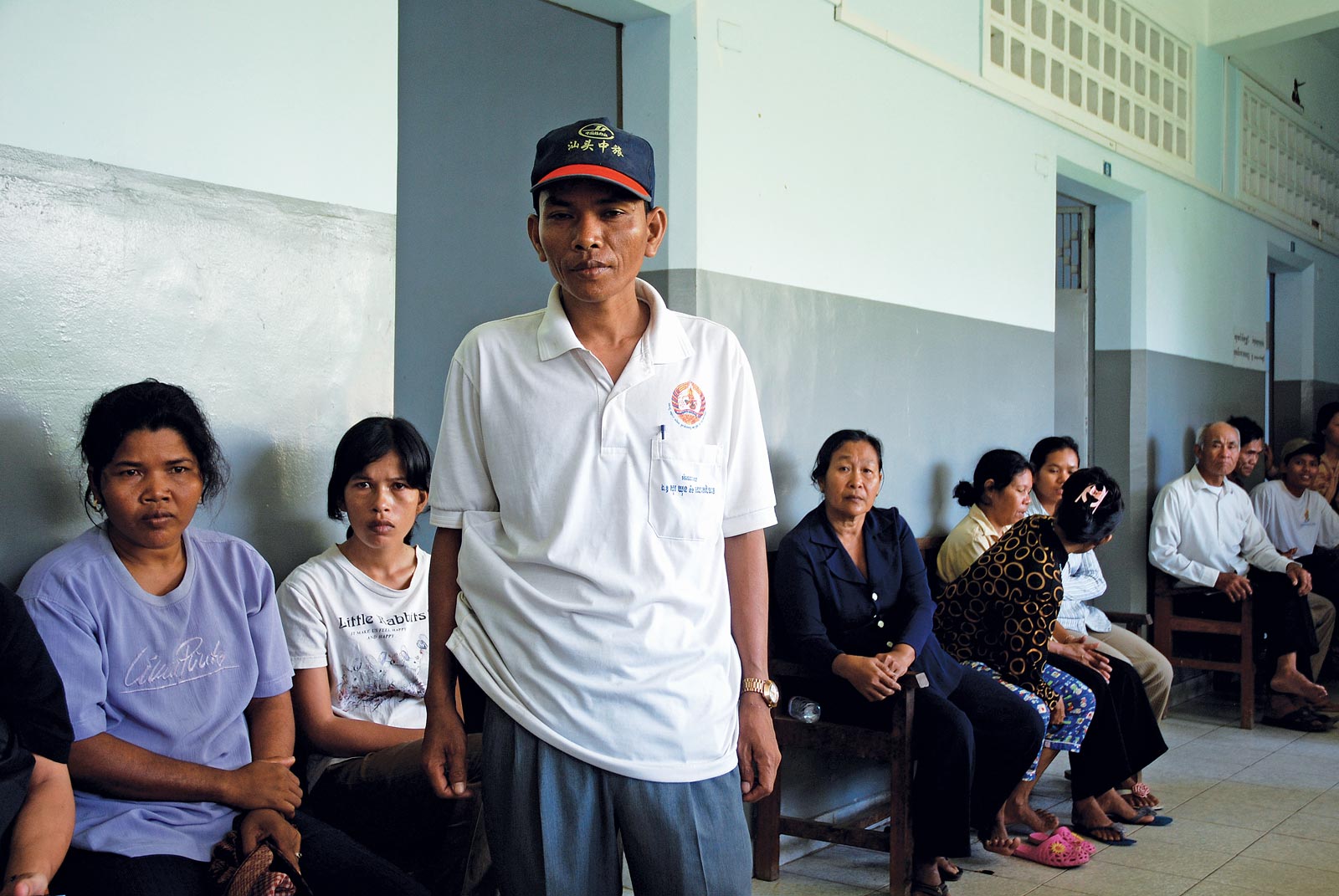
Kim Houn He is the department’s chief psychiatrist. He says that Sokhundy will get better, but it might take some time. He says he is seeing more young patients arriving for treatment and believes the cause is social. Technological developments and a rapidly growing economy have put more stress on young people to achieve and many turn to drugs to insulate themselves from their parents’ expectations. Poverty is another factor, he adds.
The medicines at the hospital are often past their sell-by date and Houn He spends a lot of time trying to encourage the international community to help with fresh stocks of medicine. His salary from the hospital is less than $120 a month and he works at a private psychiatric clinic to make ends meet. There the clientele is very different, but ultimately the same.
“Rich people get mental problems, too, because they always expect to be happy. Often, as a result, they indulge in alcohol and drugs and develop similar psychoses, depressions and ulcers to the ones we treat here,” he says while he locks his office.
All the patients have gone now and the department is silent – except for Sokhundy’s screams.


